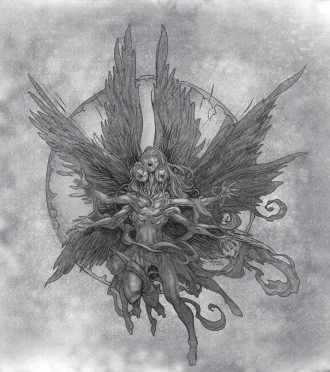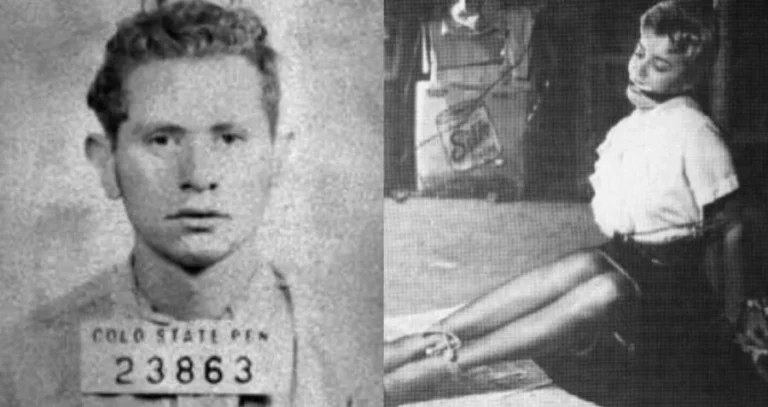Exploring the Rich Tapestry: Top 10 Books on Native American History
Exploring the Rich Tapestry: Top 10 Books on Native American History: Understanding Native American history is crucial for appreciating the diverse and rich tapestry of cultures and experiences that have shaped the United States. Books are powerful tools that help us delve into these narratives, offering insights from various perspectives. This article presents ten highly recommended books that provide a comprehensive look into Native American history, culture, and contributions.
Why Read About Native American History?
Understanding the significance of Native American history involves recognizing its impact on broader historical contexts and current societal issues. Accurate representation is essential for honoring and preserving the rich heritage of Native American communities. These books not only illuminate historical events but also explore cultural contributions that have significantly shaped the American narrative.
The Significance of Historical Accuracy
Accurate representation in historical literature is fundamental for a true understanding of Native American experiences. These books contribute to a more nuanced and respectful portrayal of Native American lives, moving beyond stereotypes and misconceptions. They help readers grasp the complexities of historical events and their ongoing impacts on contemporary issues.
Contributions to Broader Historical Context
Native American history is integral to understanding the broader American story. From early colonial encounters to modern-day struggles and achievements, these books highlight the crucial role that Native Americans have played in shaping national history. They also offer insights into the influence of Native American scholars and authors in historical discourse.
Criteria for Selecting the Top 10 Books
Choosing the right books to study Native American history involves evaluating several key factors. The following criteria ensure that the selected books are both authoritative and insightful.
Author Credibility and Expertise

Author credibility is paramount when selecting books on Native American history. Esteemed authors with deep knowledge and connections to Native American communities provide valuable perspectives. Look for books written by historians, scholars, or Native American authors who have firsthand experience or extensive research in the field.
Scope and Depth of Content
The best books offer a balanced view of Native American history, covering various periods and aspects. They provide both comprehensive overviews and detailed analyses of specific events or themes. A well-rounded book should appeal to both casual readers and serious students of history.
Historical and Cultural Impact
Books that have made a significant impact on readers and the scholarly community are worth considering. These works often receive critical acclaim and are frequently referenced in academic discussions. They contribute to a deeper understanding of Native American history and culture.
Top 10 Books on Native American History
Here are ten must-read books that offer valuable insights into Native American history, culture, and contributions:
1. Bury My Heart at Wounded Knee by Dee Brown
Summary and Key Themes: This seminal work provides a comprehensive account of the injustices faced by Native American tribes in the late 19th century. Dee Brown’s detailed narrative highlights the brutality of the U.S. government’s policies and the resilience of Native American communities.
Impact and Reception: Widely praised for its thorough research and emotional depth, this book has become a classic in Native American literature. It has been instrumental in raising awareness about the historical injustices experienced by Native Americans.
2. The Heartbeat of Wounded Knee: Native America from 1890 to the Present by David Treuer
Summary and Key Themes: David Treuer’s book offers a powerful counter-narrative to traditional histories, focusing on the survival and adaptation of Native American cultures in the 20th and 21st centuries. Treuer, a Native American author, provides a fresh perspective on the resilience and ongoing vitality of Native communities.
Impact and Reception: This book has been celebrated for its innovative approach and for giving voice to contemporary Native American experiences. It provides a necessary update to the historical record and challenges prevailing stereotypes.
3. The Absolutely True Diary of a Part-Time Indian by Sherman Alexie
Summary and Key Themes: This semi-autobiographical novel by Sherman Alexie explores the life of a Native American teenager navigating life on and off the reservation. Through humor and poignant observations, Alexie addresses themes of identity, resilience, and the struggles faced by Native American youth.
Impact and Reception: The book has received numerous awards and accolades for its honest portrayal of contemporary Native American life. It is widely used in educational settings to foster discussions about cultural identity and systemic challenges.
4. 1491: New Revelations of the Americas Before Columbus by Charles C. Mann
Summary and Key Themes: Charles C. Mann’s groundbreaking work challenges traditional notions of pre-Columbian America, presenting evidence of advanced civilizations and complex societies. The book sheds light on the rich history and achievements of Native American cultures before European contact.
Impact and Reception: Praised for its meticulous research and engaging writing, this book has reshaped understanding of Native American history. It highlights the sophisticated nature of pre-Columbian societies and their contributions to global history.
5. Columbus and Other Cannibals: The Wetiko Disease of Exploitation, Imperialism, and Terrorism by Jack D. Forbes
Summary and Key Themes: Jack D. Forbes explores the concept of “wetiko,” a term used to describe a psychological condition of greed and exploitation. The book examines the impact of European colonialism on Native American cultures and the ongoing effects of imperialistic ideologies.
Impact and Reception: This thought-provoking book offers a unique perspective on colonialism and its psychological impacts. It has been influential in discussions about the legacy of European exploitation and its effects on Native American communities.
6. An Indigenous Peoples’ History of the United States by Roxanne Dunbar-Ortiz
Summary and Key Themes: Roxanne Dunbar-Ortiz provides a comprehensive history of the United States from the perspective of Indigenous peoples. The book challenges traditional narratives and highlights the ongoing struggles and resistance of Native American communities.
Impact and Reception: This book has been highly praised for its critical examination of U.S. history and its impact on Native American populations. It is an essential read for understanding the broader implications of colonialism and its effects on Indigenous peoples.
7. The Dawn of American History by James A. Dorsey
Summary and Key Themes: James A. Dorsey offers a detailed account of the early interactions between Native Americans and European settlers. The book provides insights into the complexities of these encounters and their long-term consequences.
Impact and Reception: Known for its thorough research and balanced portrayal, this book is a valuable resource for understanding the foundational moments of American history and their impact on Native American communities.
8. In the White Man’s Image: The Rise of the American Indian Movement by Charles E. Trimble
Summary and Key Themes: This book explores the origins and impact of the American Indian Movement (AIM), a pivotal organization in the fight for Native American rights. Charles E. Trimble provides an in-depth analysis of the movement’s goals, strategies, and achievements.
Impact and Reception: Trimble’s work is recognized for its detailed examination of AIM’s role in the struggle for Native American civil rights. It offers valuable insights into the activism and resilience of Native American leaders and communities.
9. The People Named the Sioux by William M. T. Hagan
Summary and Key Themes: William M. T. Hagan provides a thorough history of the Sioux people, focusing on their cultural traditions, historical challenges, and interactions with European settlers. The book offers a comprehensive view of Sioux history and contributions.
Impact and Reception: This book is celebrated for its detailed research and respectful portrayal of Sioux history. It is an important resource for understanding the rich cultural heritage of the Sioux Nation.
10. Proudly Indigenous and Black: A History of the Blackfeet Nation by John W. Roberts
Summary and Key Themes: John W. Roberts explores the history and experiences of the Blackfeet Nation, highlighting their contributions and struggles. The book provides a nuanced view of the Blackfeet community and its interactions with other Native American groups and European settlers.
Impact and Reception: This book has been praised for its thorough research and engaging narrative. It offers a valuable perspective on the Blackfeet Nation’s history and cultural heritage.
How to Choose the Right Book for You

When selecting books on Native American history, consider the following:
Consider Your Interests and Goals
Identify what aspects of Native American history interest you most. Are you looking for a broad overview or a detailed exploration of specific events or cultures? Determine your goals, whether for academic research, personal enrichment, or educational purposes.
Reading Reviews and Recommendations
Look for reviews from reputable sources and recommendations from scholars or Native American communities. Reviews can provide insights into the book’s quality and relevance, helping you make an informed choice.
Additional Resources for Learning About Native American History
Recommended Documentaries and Films
- The American West (2016) – A documentary series that explores the history of the American West, including Native American perspectives.
- Reel Injun (2009) – A film that examines the portrayal of Native Americans in Hollywood cinema.
Online Archives and Databases
- Native American Heritage Month: A collection of resources and historical documents related to Native American history.
- The National Archives: Provides access to historical records and documents related to Native American history and policy.
References:
- Bury My Heart at Wounded Knee – Dee Brown
- The Heartbeat of Wounded Knee – David Treuer
- [The Absolutely True Diary of a Part-Time Indian – Sherman Alexie](https://www.goodreads.com/book/show/693208.The_Absolutely_True_Diary_of_a_Part_Time_Indian





